In just a few years, consumer-oriented, private mobile devices have infiltrated office environments, introduced by employees looking to build more flexibility and productivity into their standard suite of company-supported tools. While companies have reluctantly accepted that this trend—Bring Your Own Device (BYOD)—is here to stay, internal uncertainty over data protection and cyber risk abounds. In the face of such concerns, many BYOD support initiatives remain limited, to the detriment of business security.
The seven charts presented below illustrate why expanded BYOD support and security is critical for the future of the modern enterprise.
1) Mobile is booming
At a WSJD conference in late 2014, it was declared that “mobile is eating the world.” Indeed, not only do mobile devices dominate the consumer electronics market, they also dominate consumers’ time. Americans spend an average of 3.3 hours per day on their smartphones alone.
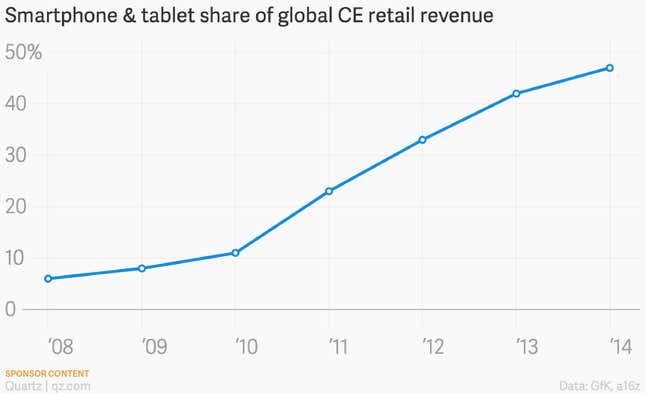
2) Mobile is everywhere
Similar research suggests 66 percent of consumers use their mobile devices inside and outside the home. A survey of smartphone usage by location substantiates these numbers; researchers found consumers were using their phones everywhere, regardless of whether they were stationary, in transit, at home, or at work.
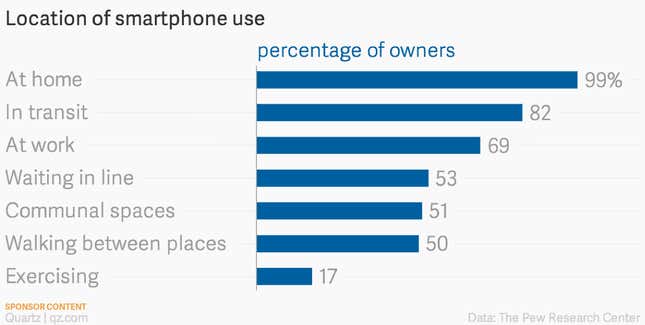
3) BYOD is happening and will continue to happen
It is no longer a given that employees are working from corporate technology assets. While company-owned devices still officially outnumber privately-owned devices, these numbers may soon change—more than half of IT pros believe BYOD will continue along its upward trajectory for the next three years.
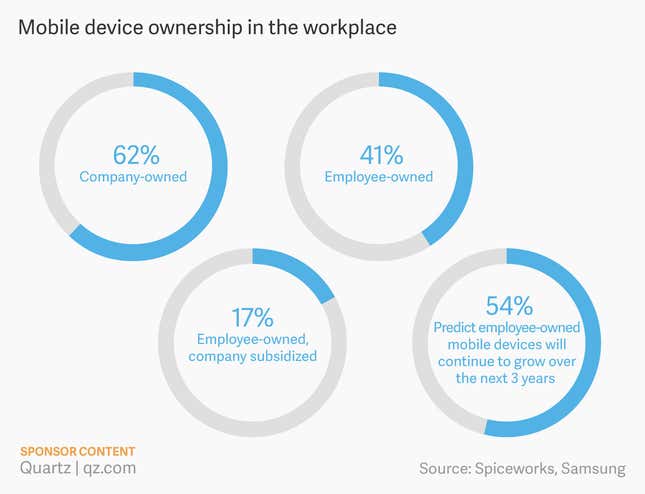
4) Despite aggressive employee mobile adoption, corporate BYOD support lags
While the workforce is definitively mobile, businesses offering BYOD device support are inconsistent at best. In fact, despite almost 100 percent usage in the smartphone and laptop categories, 15 percent of respondents in recent a Spiceworks survey indicate they still do not officially support any of four the most common types of mobile devices.
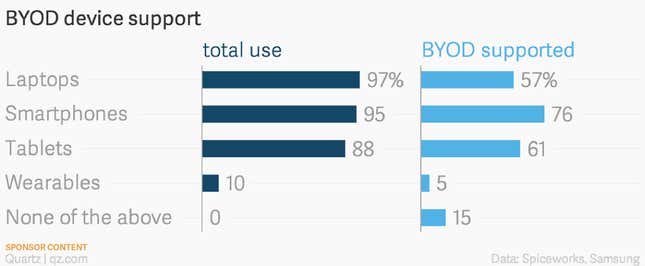
5) Even “support” is limited in scope
At those companies that do support BYOD programs, support comes in many shapes and sizes. Only 11 percent of companies support 3 or more devices. Likewise, while 99 percent of IT decision makers are willing to provision BYOD devices with email and calendar access, most other services remain tightly controlled.
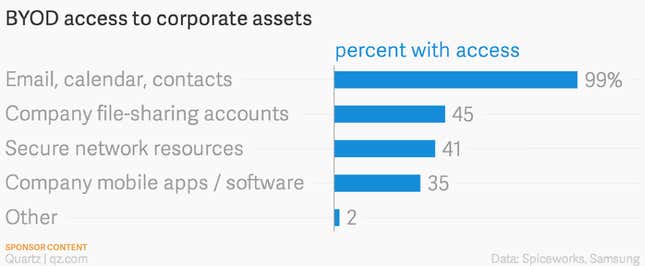
6) Limitations on BYOD are driven by fear
A long list of factors contribute to enterprise apprehension about privately owned devices in the office. Device security, data security, and network security top the list of concerns.
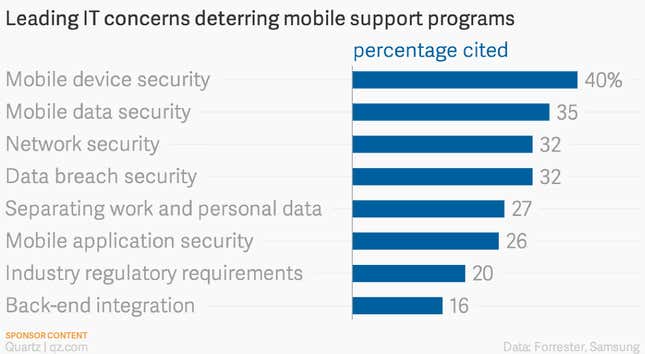
7) Concern is not unfounded
Data breaches have grown in scale and notoriety, doing lasting damage to brands and bottom lines alike. In 2014, the cost of data breaches rose 15 percent, to an average loss of $3.5 million per leak. While mobile breaches have stayed historically low, the risk is quickly escalating.
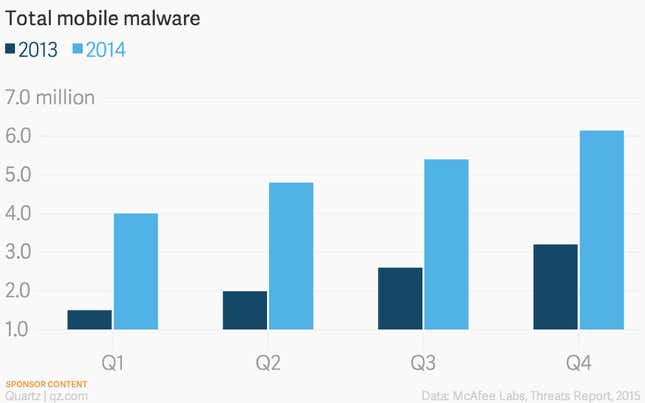
As the number of personal mobile devices within corporate environments continues to rise, IT departments will need to move beyond access limits and deploy complete BYOD solutions that adequately protect their companies against these growing threats. From thwarting malware to preventing data leakage, Samsung Knox provides a multi-layered mobile security platform that meets the needs and concerns of even the most demanding business environments.
Learn more about how Samsung’s comprehensive mobility management offerings drive BYOD without reservations here.
This article was produced on behalf of Samsung by the Quartz marketing team and not by the Quartz editorial staff.